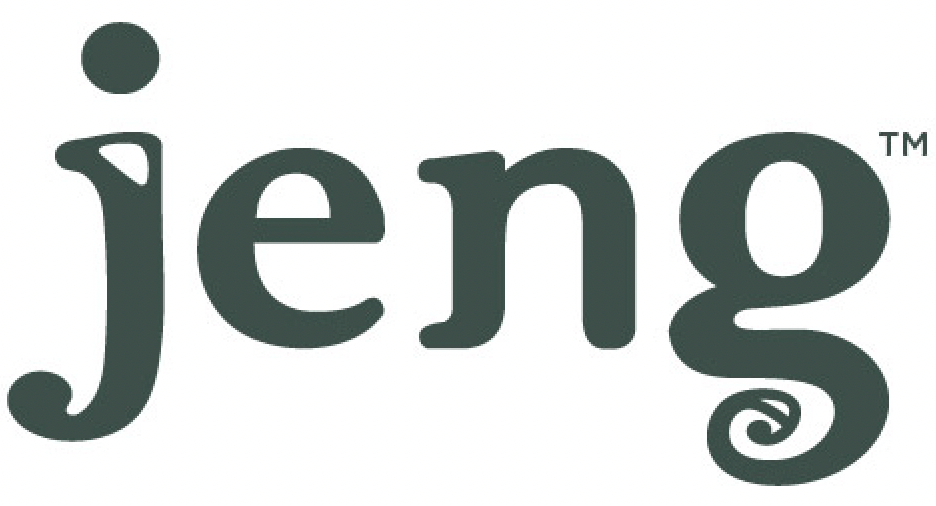
CBD vs. Alcohol: Does CBD Really Give You a Buzz?
The past few years have seen an explosion in the popularity of CBD, with people using it for everything from anxiety to pain relief to skincare. As CBD goes mainstream, one of the biggest questions people have is how using CBD compares to drinking alcohol. Does CBD make you feel high or give you a buzz like alcoholic drinks? Can CBD provide relaxation without mental impairment? Read on as we dive into the key facts about CBD vs. alcohol, unpacking the myths and realities about their effects.
CBD 101: A Crash Course on the Cannabinoid
Before comparing CBD and alcohol, let’s start with a quick CBD overview for those new to the compound. CBD, short for cannabidiol, is one of over 100 cannabinoids found in the cannabis plant. Unlike THC, the cannabinoid known for its intoxicating high, CBD is completely non-psychoactive. This means it does not impair mental processes or create a feeling of being “stoned.”
CBD interacts with the body’s endocannabinoid system, a network of receptors and neurotransmitters that help regulate functions like pain, mood, appetite, memory, and more. Researchers are still unlocking the intricate details, but it appears CBD can influence this system to produce therapeutic effects without disrupting mental clarity.
When it comes to using CBD, there are a ton of options out there. Oils and tinctures taken under the tongue remain the most popular format. But with the rise of the CBD beverage market, you can now also find CBD infused into seltzers, coffees, teas, cocktails, and more. CBD is also available in capsules, gummies, topicals, and various other formats.
Alcohol 101: How Booze Affects Your Brain and Body
Alcohol has been consumed socially across cultures for thousands of years. It’s known for its ability to create feelings of euphoria, relaxation, and increased sociability in moderate amounts. However, drinking too much can also lead to impaired coordination, slowed reflexes, blurred vision, risky behaviors, and more severe health concerns.
When you ingest an alcoholic drink, the ethanol in it passes quickly from your stomach and small intestine into your bloodstream. From there, it crosses the blood-brain barrier and begins interacting with neurotransmitters and receptors in your central nervous system.
At lower blood alcohol concentrations, you may feel more talkative, less anxious, and experience mild muscle relaxation. As the dose increases, motor control, reaction times, judgment, and decision-making abilities become progressively more impaired. The drowsiness and depressant effects also intensify at higher blood alcohol levels.
The most common alcoholic drinks include beer, wine, spirits, and mixed cocktails containing distilled liquor. These vary in precise ethanol content but on average range from around 5-15% alcohol by volume for beer, around 12-14% for wine, and 40-50% or more for distilled spirits.
So Does CBD Actually Make You Feel High or Drunk?
Now that we’ve reviewed some CBD and alcohol basics, let’s tackle one of the biggest misconceptions out there: the idea that CBD can make you feel high or intoxicated. While research is still limited, current evidence overwhelmingly shows CBD is not intoxicating and does not impair mental or physical functioning.
One key reason CBD does not get you high is because it does not directly bind to the CB1 receptors in the brain as THC does. Stimulating CB1 is what produces the classic marijuana high. CBD may mildly influence these receptors indirectly along with other targets, but the effect is nowhere near the intensity and impairment caused by THC or alcohol.
With CBD, most people report feeling more relaxed, calm, and free from discomfort, but without marked impairment in motor skills, perception, cognition, or other faculties. Any psychoactive side effects tend to be mild. With alcohol, the intoxicating effects are much more pronounced as blood ethanol levels rise.
Comparing the CBD and Alcohol Experiences
While CBD is non-inebriating, it can produce subjective feelings of relaxation and ease. The precise sensations vary based on the individual and dose. Some common effects users report include:
- Decreased anxiety and worry
- Improved mood and outlook
- Relief from pain or discomfort
- Feeling calmer and less stressed
- Improved sleep quality
- Mild euphoria and tranquility
These effects emerge gradually over 1-2 hours when ingesting CBD oils, edibles, or capsules, especially when taken with food. Vaping or smoking CBD flower produces faster effects, but shorter duration. Topicals are absorbed through the skin for localized benefits.
In contrast, ingesting alcohol brings on rapid effects within 30-60 minutes. The impacts peak around 1 hour in and last for 2-5 hours depending on the amount consumed. While CBD is predominantly relaxing and subtly mood-lifting, alcohol has more dramatic physical and emotional impacts ranging from talkativeness and euphoria to drowsiness and impaired coordination at higher doses.
Both CBD and alcohol seem to interact with GABA receptors and may influence serotonin in the brain. But CBD does not bind to opioid receptors as alcohol does. This may contribute to alcohol’s more strongly addictive properties for some individuals. Additionally, CBD remains in the bloodstream for only 1-2 days while alcohol lingers for weeks after heavy drinking.
Side Effects
When it comes to side effects, CBD is considered extremely safe with few risks outside of mild drowsiness, dry mouth, and nausea at very high doses. Alcohol comes with dehydration, disrupted sleep quality, increased risk-taking behavior, and other issues, especially with chronic heavy use.
Can CBD-infused drinks lead to addiction?
While more research is still needed, current evidence indicates the potential for addiction or dependence with CBD is very low, especially when compared to alcohol and other substances. Unlike THC, CBD does not appear to stimulate dopamine release in the brain's reward pathways in the same reinforcing way. Most users report not feeling any compulsive need to take CBD daily long-term. However, some people may come to psychologically enjoy and crave the relaxation CBD provides. There are no severe physical withdrawal symptoms if someone stops taking CBD. Overall, CBD is considered non-addictive, but each person may experience differing psychological responses to it.
Is it safe to mix CBD-infused drinks with alcohol?
There are no known dangerous interactions between CBD and alcohol that make combining them inherently unsafe. However, both CBD and alcohol can cause drowsiness and sedation. Consuming them together may potentiate these effects in some individuals. So it's best to start with very low doses of both to assess your reaction. Many people do enjoy blending CBD cocktails or beverages with a bit of alcohol socially with no ill effects. Just be cautious with operating any vehicles or machinery if combining CBD and alcohol. It's also wise to avoid overconsuming alcohol in general, regardless of adding CBD. Moderation remains key.
Why People Are Turning to CBD Over Alcohol
Given the differences between CBD and alcohol, it’s understandable why many people are replacing evening cocktails with CBD oil or CBD-infused seltzers and beverages. Top reasons include:
Seeking relaxation without mental impairment: With CBD, you can unwind and destress without the sluggishness and haziness that comes with being inebriated. This allows you to fully enjoy experiences without the distortion or sedation from alcohol.
Avoiding negative health effects: Hangovers, disrupted sleep, dehydration, and long-term impacts on organs can make alcohol less appealing for health-conscious consumers. CBD provides unwinding benefits without harsh downsides.
Losing interest in altered states: For those in recovery or seeking personal growth, CBD can satisfy the yearning for relaxation and reduce anxiety without an intoxicated state of consciousness.
Interacting more meaningfully: Excessive drinking can make people withdrawn and disengaged. With CBD, users report feeling more present, attentive, and able to connect with loved ones in a genuine way.
The Future is CBD-Infused Cocktails
Rather than completely replacing alcohol, many people are opting to pair CBD with lighter drinking. This allows them to enjoy the pleasures of a cocktail while mitigating some of alcohol’s unwanted effects.
CBD-infused craft cocktails and drink recipes are exploding in popularity at forward-thinking bars and restaurants. Similarly, cannabis-inspired tonics, beers, and THC/CBD beverages are also on the rise as legalization spreads.
One great example of this trend is Jeng - a CBD-infused cocktail brand offering hemp-derived flavors and functional botanicals. Born in Montauk, New York during the pandemic, Jeng wanted to reinvent cocktail culture for the modern era. Our products aim to provide the complexity and sensory delight of quality mixology, but with a CBD twist.
Rather than the one-note taste of most CBD beverages or alcohol replacements, Jeng infuses each blend with unique flavors like pink grapefruit juice, rosemary, lime, and ginger. We also add carefully selected botanicals to produce targeted functional benefits.
Jeng's products provide a sophisticated alcohol-free alternative for enjoying cocktails anytime, anywhere. Each drink is "designed to replace a mood, not just a beverage." This ethos sums up the appeal and promise of CBD cocktails.
The Key Takeaways
To wrap up, here are the key facts to remember when comparing CBD and alcohol:
- Unlike THC, CBD does not produce impairment or intoxication. Any mild “high” is subtle and just involves relaxation of mind and body.
- Alcohol has rapid, intense effects that peak within an hour before subsiding over 2-5 hours. CBD is more gradual, subtle, and longer-lasting.
- People use CBD over alcohol to avoid disruption in cognition, coordination, and general functioning. CBD provides benefits without the sedation.
- Combining lower alcohol intake with CBD may allow people to enjoy social drinking while mitigating negative side effects.
- CBD-infused cocktails and cannabis beverages are rising in popularity as sophisticated alcohol-free options.
While research is still evolving, current evidence indicates CBD poses few significant side effects and minimal addiction risk, especially compared to alcohol. So if you’re curious whether CBD can provide buzz-like benefits without the booze, give it a try! Chances are you’ll enjoy a new wave of relaxation and clarity. Just be sure to consult your doctor if combining CBD with medications.

